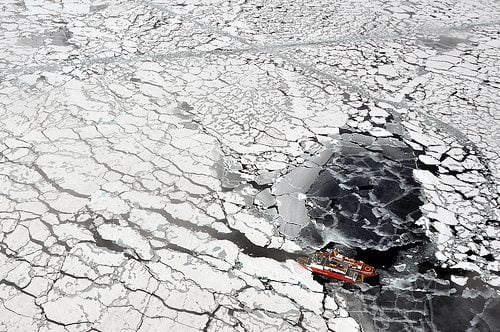

Economy
Melting Arctic could cost economy trillions – as well as being environmentally catastrophic
The release of large amounts of methane from thawing permafrost in the Arctic could cost the global economy trillions, scientists have claimed.
It has so far been largely assumed that the melting of the region would by economically beneficial, given it is thought to be home to plentiful untapped resources of gas and oil.
However, a new study claims that the costs of this melting will far outweigh the profits made from fossil fuel extraction, as the region has a powerful influence on the world’s climate.
It says the release of a single “pulse” of methane from permafrost beneath the East Siberian Sea could cost $60 trillion (£39 trillion) alone. The global economy in 2012 was $70 trillion.
This would be particularly damaging to developing countries. All nations would be affected, but the study, by researchers from the University of Cambridge and the Netherlands, claims 80% of the economic consequences would hit the poorer economies of Africa, Asia and South America. The extra methane would also increase floods, droughts and storms, and agricultural production would suffer.
A previous study measured the methane emissions being released by warmer waters in the East Siberian Sea. In 2012, Russian scientists found so-called ‘methane fields’ in the northern part of the Laptev Sea that were more than 1km in diameter.
However, this is the first time scientists have attempted to put a price tag on the effects such activity could have on the economy.
In 2012, the World Economic Forum (WEF) launched a Global Agenda Council on the Arctic to encourage discussion on how to develop the area sustainably.
However, the study’s authors say more must be done: “The WEF should kickstart investment in rigorous economic modelling. It must ask world leaders to consider the economic time bomb beyond short-term gains from shipping and extraction.”
Further reading:
Arctic ice melt forces Russian scientists to abandon research station
Arctic ice reaches record low, with more melting expected
Arctic sea ice loses 36% volume in a decade
Comprehensive study shows extent of ice loss increase
International Arctic forum launched to help alleviate region’s threats


 Environment12 months ago
Environment12 months agoAre Polymer Banknotes: an Eco-Friendly Trend or a Groundswell?

 Features11 months ago
Features11 months agoEco-Friendly Cryptocurrencies: Sustainable Investment Choices

 Features12 months ago
Features12 months agoEco-Friendly Crypto Traders Must Find the Right Exchange

 Energy11 months ago
Energy11 months agoThe Growing Role of Solar Panels in Ireland’s Energy Future




























